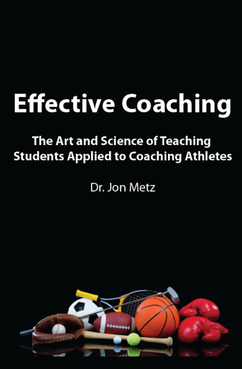|
You have been training hard over the winter and just learned that your first race of the season, or maybe your “A” race, has been canceled or postponed.
So now what? Athletes around the world are feeling this sense of disappointment as spring races are dropping off the calendar amid the global coronavirus concerns. While the race changes are warranted for the health of the public, triathletes are now wondering what to do next. First, use your disappointment as motivation and opportunity. Remember, one of the most important rules in triathlon is to focus on what you can control. You had no control over the decision to cancel or postpone the event. However, you have full control over how you deal with that information. You now have an opportunity to address any pain or injuries that you have been avoiding because your event was approaching quickly. Take this extra time to recover and heal. Depending on the availability of facilities, you may be able to seek the assistance of a specialist such as a physical therapist or massage therapist to help you in the healing process. And, if you're self quarantined, some physical therapy services may also offer telehealth options so you can benefit from the expertise of specialists remotely." Another opportunity is for you to work on any areas of limitation. Say for example, you know your swim stroke and technique needs work. Now could be the time to address that area because you don’t need to be focused on specific distances or detailed swim workouts building up to your event. These opportunities will require a shift in your current training plan and mindset. If you are unsure of what to do, we suggest you seek the guidance of one of our USA Triathlon Certified Coaches. This is one of the many situations where the knowledge of a USA Triathlon Certified Coach is valuable. You can use our Find a Coach feature here to find a coach who fits your specific needs. Stay healthy and use this opportunity to maximize your potential on, your new, race day! https://www.teamusa.org/USA-Triathlon/News/Blogs/Multisport-Lab/2020/March/18/From-a-coach-What-do-I-do-if-my-race-plans-have-changed  As a coach you cannot just “wing” a practice session. Your athletes will immediately know if you have not effectively prepared for the session. Your athletes will see it, sense it, and will respond to your lack of structure. Effective session planning takes time, skill, and thought. Coaches should create a session plan, similar to a lesson plan used by classroom teachers, for every session with athletes. Good session planning is a skill that requires training, patience, practice, and guidance. When a coach plans well, most of the work is done and then all that is left is to have fun coaching the session. Coaches who do not plan effective sessions end up struggling with behavior iisues, off-task athletes, and general chaos. In addition, for athletes to learn a new skill or perform better, the session must be well thought out and well executed. Dr. Jon Metz, Methods of Coaching Every athlete is her own person, a unique individual with unique talents, skills, and strengths. Yet, we often try to make our athletes something they are not. We compare them to their siblings or to other athletes. Ask any parent who has two or more children if any of their children are even remotely alike. The answer will usually be a resounding no. Our job, as coaches, is to find the unique aspects of every athlete we coach and to celebrate and nurture those qualities.
Dr. Jon Metz, Methods of Coaching by Jon Metz
When it comes to preparing for the bike leg of the triathlon, most athletes tend to be focused on making sure they are logging the appropriate mileage while getting faster and/or stronger. Unfortunately, bike handling skills are not addressed or practiced. Great bike handling skills are required in draft legal racing. Furthermore, in age group racing many crashes and accidents could be prevented by athletes who are aware of their environment while on the bike. All athletes should possess the necessary skills to intuitively handle riding near other athletes and avoid unforeseen situations. Practicing is the best way to ensure draft legal and age group athletes have the necessary bike handling skills. All athletes should practice bike handling skills. Practicing these skills in a group environment makes the activities more fun and competitive. In some cases, it is necessary to have at least one other cyclist to perform the drill effectively. Here are a few of my favorite bike handling drills. by Jenny Redding
3:45AM time to rise and shine race morning! Of course, any other day I am ravenous when I wake up but on race morning it is always a project to eat. I stuck with peanut butter and a banana and some coffee. During the week leading up to the race I try to eat food that doesn’t have a lot of additional fiber or seeds – especially whole flax seeds. The wreak havoc on my GI track. I also take 2 Imodium the morning of the race to ward off any potential GI issues when I am running. by Jenny Redding
Where do I begin? I want to start from the beginning, my first ever Ironman but that would make for a long blog. I will however look back to two years ago when I sat with my coach Jon Metz discussed my goals. by Jon Metz
Many triathletes view riding on an indoor bike trainer as some sort of medieval torturing device that they will only use when the weather out-side won’t allow them to ride. Instead I suggest that you look at your trainer as a tool to make you stronger on the bike during the winter. Actually, (I know this will sound crazy) you should revisit your trainer periodically during the summer months too. You can use your trainer to help focus on improving your limitations instead of just logging a bunch of miles that you can brag about on Facebook. by Jon Metz
Community-supported agriculture, also known as a farm share, is a form of an alternative food network. (CSA) is a socio-economic model of agriculture and food distribution. CSA’s usually consist of a system of weekly delivery or pick-up of vegetables and fruit, in a vegetable box scheme, and sometimes includes dairy products and meat. It enables farmers to develop a cohesive consumer group that is willing to fund a whole season’s budget in order to get quality foods. CSA theory purports that the more a farm embraces whole-farm, whole-budget support, the more it can focus on quality and reduce the risk of food waste or financial loss. |


